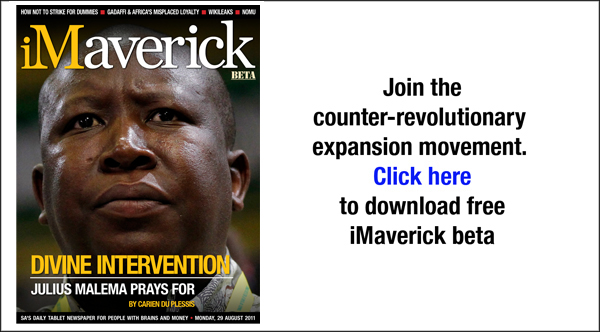Sci-Tech
The Sum of All Fears, round II: Syria’s chemical weapons

If the possibility of a nuclear dirty bomb made from materials stolen from a Libyan research reactor wasn’t enough to keep you awake nights, then this story might just do the trick. By J BROOKS SPECTOR.
Three years ago, a secret State Department telegram, later made available by Wikileaks, described a growing chemical weapons threat from Syria. That country has consistently supported terrorist organisations and the cable noted it was now trying to obtain additional technology to upgrade its stockpile. As unrest continues in Syria, analysts fear this might lead to a situation where some still nastier people might get control over these chemicals.
Unlike Libya’s chemical weapons, Syria’s stockpile includes sarin gas rather than garden-variety, old-style mustard gas. Mustard gas was first introduced into warfare in World War I. By contrast, Syria’s preferred poison is in thousands of artillery shells stored around the country and some of these can be launched as warheads via Syria’s collection of Scud missiles as well. These warheads and shells are easily transported – thus the rising concern about where they might be carried to – and by whom.
Sarin, of course, is the highly toxic chemical used in a terrorist attack in the Tokyo subway system in 1995 by the bizarre Aum Shinrikyo political-religious sect. If a victim breathes a miniscule amount of sarin, it kills. Entered into the food chain or water supply, it is just as lethal but even more people become affected.
While the analysts paying attention to this issue do not believe Syria’s leader, Bashar al-Assad, has plans to share such weapons deliberately with terrorist organisations, the analysts now worry that control over these weapons could fall apart from the chaos that evolves out of a broader popular uprising, if that collapses the competence of Syrian security services now in control of these weapons. An anonymous American international security official whose brief is Syria, told the Washington Post “This is a scenario that’s on the radar screen if things go downhill. A lot of people are watching this closely”. This is a bitter irony, indeed.
Syria first got addicted to building chemical weapons in the 1970s. With help from Russian scientists, the Assads – father and son – built an arsenal of these things as a strategic deterrent against Israel’s much more potent military.
Over the years, many nations have foresworn these dreadful weapons – including the US and Russia – but the Syrians never signed the UN’s Chemical Weapons convention. The Post report adds the CIA believes that beyond sarin, Syria has also been working on developing a still-more potent nerve agent, VX, a product that takes longer to degrade, once loosed into the environment.
The US State Department’s Jeffrey Feltman, its chief official for the Middle East, had told a congressional committee last year that Syria’s chemical weapons program was the primary reason for ongoing US economic sanctions against that regime.
Wikileaks’ distribution of the secret 2008 State Department cable appears to have pushed Syria into trying to access glass-lined reactors and other high-tech equipment needed to develop chemical warfare elements from a private Indian firm. That, in turn, led the US to press India to block that sale but it is unclear, apparently, exactly what happened with that planned sale.
While the Arab Spring has opened up tantalising possibilities of democratic regimes in many Arab nations, it is now prompting reassessments of the risks posed by orphaned nuclear, biological and chemical materials. While there is no evidence – yet – that these weapons – or their precursors – have been stolen, American officials admit they are increasingly uncertain about the control of weapons depots in countries in the grip of sustained unrest.
For example, when Libyan rebels seized control of most of Tripoli last week, the Libyan stockpile apparently included 11 metric tons of mustard agent and 845 tons of chemical precursors, all of it stored in steel barrels inside a fortified bunker. The State Department said Friday that believes all that material is in secure hands, even though it hasn’t said anything about those radioisotopes at Libya’s research reactor.
American officials have also said that, at this point, they were more worried about weapons like shoulder-fired antiaircraft missiles. Accordingly, teams of specialists have been working in rebel-held areas for several months to find these missiles. Terrorists particularly like such weapons because they can shoot down low-flying planes and helicopters. So far, the teams have apparently destroyed five of these weapons and where any others are clearly has people paying very close attention as well. Naturally, too, some of those people are watching very closely from their computer screens in Tel Aviv and Jerusalem where the strategic balance between Israel and its neighbours is always job one.
As far as that goes, the question of the broader strategic picture is becoming increasingly complicated. As the New York Times’ correspondent in Israel reported: “[Israeli] officials say they are struggling with a painful set of strategic and diplomatic challenges produced by the region’s popular uprisings.
“We are witnessing a paradigm shift in front of our eyes,” said a top Israeli official…. “Egypt was a major stabilizer in the region, and that may be over. Coordination with the Palestinian security officials could be lost. We are concerned about Turkey.
“[Meanwhile, on the Israeli-Egyptian border]…the lawlessness — a mix of Bedouin tribalism, radical Muslim infiltration and a breakdown of Egypt’s security control after its revolution — affects not only Israel, but Egypt, which depends on tourism revenue and gas exports from there.”
And so, even as the many potential positives from the opening up of politics and society as a result of the Arab Spring continues to excite outside observers and the region’s citizens alike, new worries have become more troubling. The strategic balance in the region has now become less certain and predictable. In addition, the possibilities for bad guys to lay their hands on the raw materials for a non-nuclear but still lethal dirty bomb, stocks of sarin gas and those all-purpose surface-to-air missiles has become yet another worry. DM
Read more:
- Syrian unrest raises fears about chemical arsenal in the Washington Post;
- Calls in Syria for weapons, NATO intervention in the Washington Post;
- With Mideast in Turmoil, Israel Debates Strategy in the New York Times.
Photo: REUTERS







 Become an Insider
Become an Insider